Nature's Lifesavers: The Ultimate Guide To Nuts
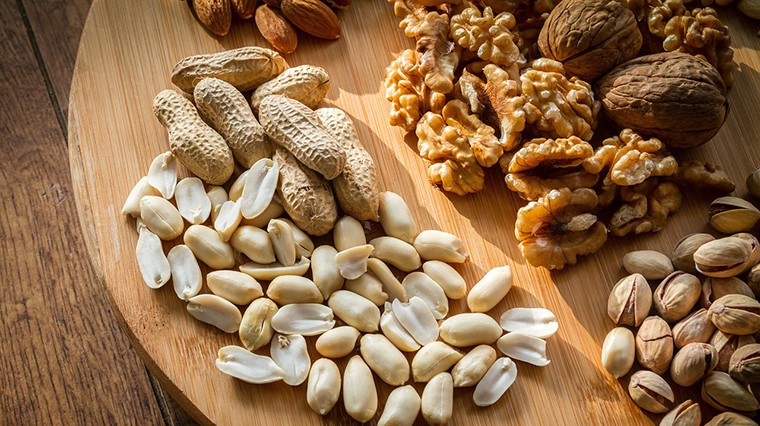
Nuts are proof that in nature, good things come in small packages. Nuts are small, tasty powerhouses of flavour, chock-full of the vitamins and minerals your body craves. Here's the low-down on our favourite healthy nut varieties.
Pistachios
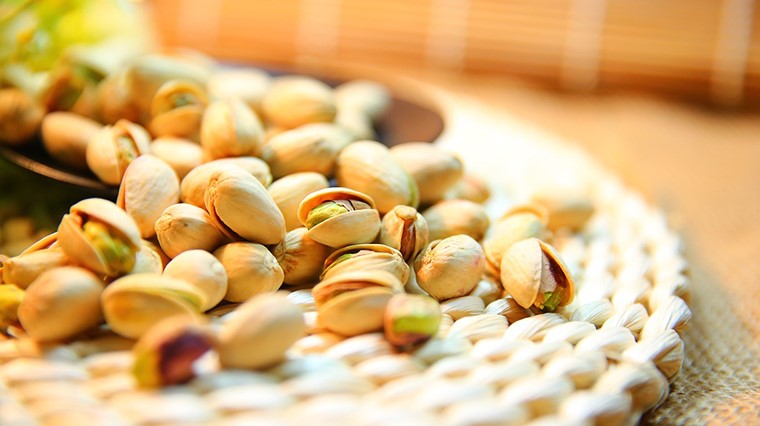
Besides from being delicious, one of the awesome things about shelled pistachios is you need to work for your food. Cracking open the shell slows down your consumption so your snack will last longer - nothing like throwing M&M's in your mouth by the handful.
They are high in energy, lower bad LDL-cholesterol and increase good HDL-cholesterol levels in your blood. They're also known for supporting heart health, weight management and healthy digestive function while minimising the risk of diabetes and hypertension (high blood pressure).
The antioxidants (lutein and zeaxanthin) in pistachios may protect against eye disease. Pistachios are high in vitamin B6 and are a source of other B vitamins for improved energy and healthy nerve function.
They contain plant iron and zinc, making them a popular snack for vegetarians.
Cashews
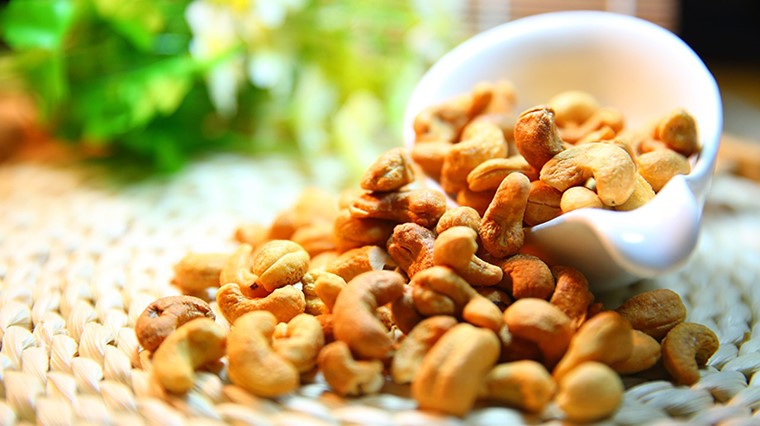
Amazing in stir fries or as a cure for the 3pm munchies and despite being one of the lowest-fibre nuts, cashew nuts are a great source of energy, antioxidants, vitamins and minerals.
Like pistachios, they're known for their benefits in weight loss and diabetes prevention. They are high in ‘heart-friendly' monounsaturated fatty acids, lower bad LDL-cholesterol and increase good HDL-cholesterol levels in your blood.
Cashews are a source of magnesium (critical for bone health), copper, plant protein, iron and zinc (which, besides boosting your immune system for flu season, can also promote healthy skin and hair).
Peanuts
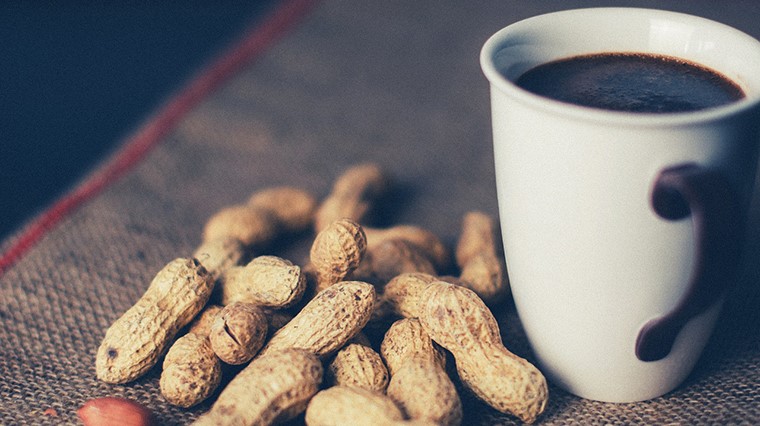
If you enjoy slathering peanut butter on your toast or love eating it out of the jar by the spoonful, you may be surprised to know botanically peanuts are legumes and not nuts (you learn something new every day!). This puts them in the category of chickpeas, lentils and peas although alike with many tree nuts, they do have heart-loving benefits.
Peanuts are perfect for giving your body a nourishing dose of B vitamins, vitamin E, manganese, folate for brain development and antioxidants. High in monounsaturated fats, peanuts are your besties for promoting heart health.
They are a valuable source of nutrients and energy, may reduce the risk of heart disease and cognitive decline. They also may assist in weight management, containing protein and fibre to keep you fuller for longer so you're less likely to go snooping in the snack drawer.
If you're sticking to a low GI (glycemic index) diet, you can smile knowing peanuts will fit in perfectly. Peanuts are slowly digested by your body and gradually release sugar into your bloodstream to keep your cravings under control and provide long-lasting energy.
Blood sugar spikes? Not with this nutritious nut... or should we say, legume! But as full of goodness as peanuts are, they're also high in calories. Just remember: portion size, portion size, portion size when it comes to peanuts! They're a superb part of a well-balanced diet.
Almonds
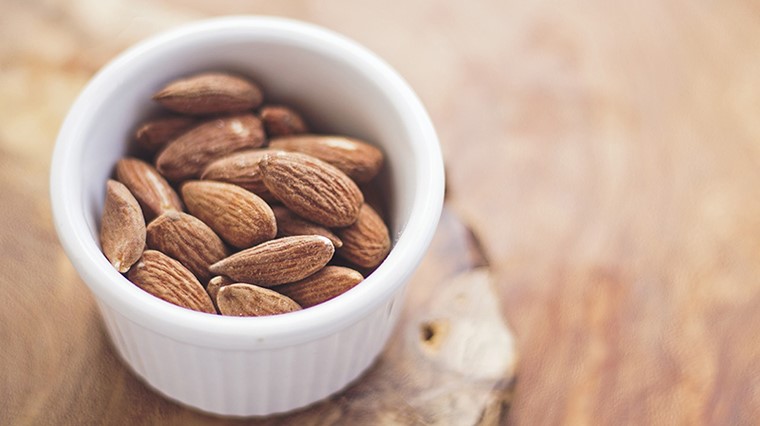
Here's the scoop on almonds. Almonds are known for supporting heart health and boosting HDL-cholesterol levels - that's the good stuff. Studies suggest they may keep heart disease at bay and minimise the risk of colon cancer.
They're little, tasty nuggets packed with vitamin E - an essential antioxidant to protect your cells from damage and combat against nasty, artery-clogging cholesterol.
Almonds are high in monounsaturated fats but don't worry, that doesn't mean these nutty beauties will go straight to your thighs! This is a healthy fat, the same in olive oil, which has been known to lower heart disease risk. Almonds are rich in fibre to keep you satisfied between meals.
Weighing in with a GI of 0, almonds are the perfect addition to the diet of diabetics.
Walnuts
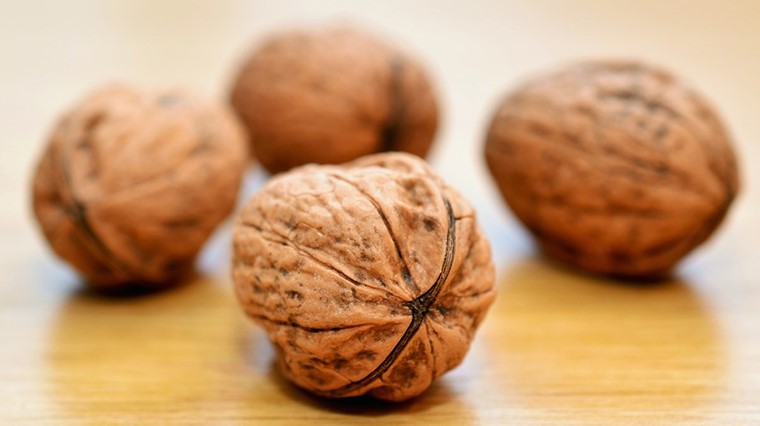
Walnuts are the super nut. They've been appropriately labelled as a superfood, containing the highest antioxidant properties of all nuts, and studies show they may help ward off breast and prostate cancer.
They are rich in vitamin E for heart health and like our other favourites, regular walnut consumption may protect against diabetes and reduce cholesterol levels.
Walnuts are high in omega 3 fatty acids which are only found in a small range of foods such as salmon and are thought to give you younger-looking, radiant skin, improve cognitive function and brain health. They even look like tiny human brains!
They are a convenient way to increase your dietary fibre and protein consumption, have high serotonin levels and are thought to help keep stress at bay. Studies show they may even improve male fertility.
Nutty Tips
Always opt for the unsalted, unsweetened versions of nuts where possible - your tummy will thank you for it. Checking the ingredients and nutritional info on the packet of nuts or nut spread goes a long way to knowing exactly what you're putting in your body to make sure there's low to no hidden nasties.
Typically, 30g of nuts (about a handful) per day is the suggested serving size. Pine nuts, brazil nuts, pecans, macadamia nuts (amazing in cookies!) and hazelnuts are higher-calorie options so be sure to pay special attention in controlling portion sizes.
For variety, create your own nut or trail mixes to bring to work and squirrel them away for when the snack cravings hit. It'll save you from the temptation to feed your well-earned dollars to a chocolate bar vending machine.
Time to go nutty!
